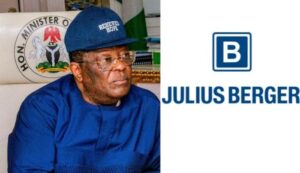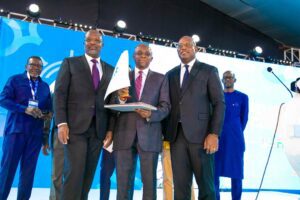


Why we are partnering stakeholders to boost citizens’ capacity devt — LASG
The Lagos State Government (LASG) has said it is mustering partnership efforts with relevant stakeholders to further build a robust human capital resource to meet the demands of Lagos as a commercial hub of Nigeria and a leading business city in Africa and the world.
This is just as the State Government through its Office of Sustainable Development Goals in collaboration with the African Human Capital Development Plus has convened an Advocacy Workshop programme on Human Capital Development for stakeholders in Lagos State.
The programme was set aside as a strategic means to boost capacity development among residents of the State for a stronger base of human capital resource
Speaking at the event held in Ikeja, the State Capital, the Head of Service, Lagos State, Mr. Bode Agoro explained that a key emerging priority of the Governor Babajide Sanwo-Olu led administration in recent times is the alignment of policies and initiatives to inspire collective effort in solving emerging problems, as the government is working across different sectors to advance good governance.
Agoro who described the 2-Day Workshop as very critical towards strengthening the State’s HCD policies and fostering greater engagement with citizens, revealed the State’s efforts towards connecting diverse stakeholders, including development advocates and policymakers will advance the Agenda of human capital development.
“Lagos is one of the most suitable places in Africa where human capital development can be explored in its entirety. As a home to one of the most dynamic and multicultural populace in the world with a value-based commercial and enterprising economy, the city represents an ideal setting for policymakers to examine the challenges and opportunities associated with human capital development on the continent,” he acknowledged.
Highlighting government interventions in the three thematic areas which are Education; Health & Nutrition; and, Labour Force Participation, in relation to the administration’s THEMES Plus Agenda, Agoro confirmed that the administration’s investment in the education sector remains paramount as all indices have shown some positive attributes that are catalyzing growth and development in the sector.
“The scale of Government investments in the health sector is designed to create new frontiers for health emergencies and promote greater inclusion by broadening access to healthcare, especially among under-served populations,” he said.
He affirmed that towards driving the labour force agenda, the government has continued to pursue an enterprising society through a symbiotic public-private strategy “by creating an ambience for our high workforce population to excel in all human endeavors.”
Earlier in her opening remarks, the Chief Executive Officer, Africa HCD Plus, Mrs. Finda Koroma explained that the HCD+ is working with a wide range of stakeholders to accelerate political commitments, decision-making and funding for key priorities towards realising Sustainable Development Goals in Sub-Saharan Africa.
Karoma who was represented by the Chief Operating Officer, Africa HCD+, Mr. Sheka Bangura noted that the path towards changing systemic issues, altering investment patterns, implementing comprehensive reforms, and shifting behaviours to further the HCD agenda demands active participation and ownership at every level of governance.
According to her, the Workshop aimed to develop actionable strategies for effective collaboration and craft robust advocacy implementation and evaluation plans to enhance the human capital resource of Lagos State and the nation at large.
While applauding Governor Babajide Sanwo-Olu for leading national efforts and harnessing the potential of diverse sectors for collaborative synergies, the Chief Executive Officer noted that stakeholders must unite with a shared vision and strengthen the pathway for its attainment.
“In line with the HCD+ thematic areas and within the broader context of the THEMES+ Agenda, Lagos State is already allocating a significant portion of its budget to education, health welfare and employment. It is admirable that the State is not driving these reforms in isolation but has formed effective partnerships with private sector actors,” she said.
In her remarks, the Permanent Secretary, Office of Sustainable Development Goals, Mrs. Tolani Oshodi stressed the importance of leveraging the untapped potential of the greatest asset – the people for the pursuit of the HCD Agenda.
She encouraged participants to explore opportunities in developing relevant advocacy and enlightenment strategies that will help the government articulate policies and plans that will impact the public positively.
The event had in attendance the Chairman House Committee on Sustainable Development Goals, Hon. Gbolahan Ogunleye, Body of Permanent Secretaries; Oba of Onigbongbo, HRH Oba Segun Ajasa; Oba of Oregun, HRH, Oba Olukunmi Olusesan; Chairperson, Lagos Island Connect, Ms. Yemisi Ransome-Kuti and participants selected across MDAs, NGOs, CSOs and Private Institutions



